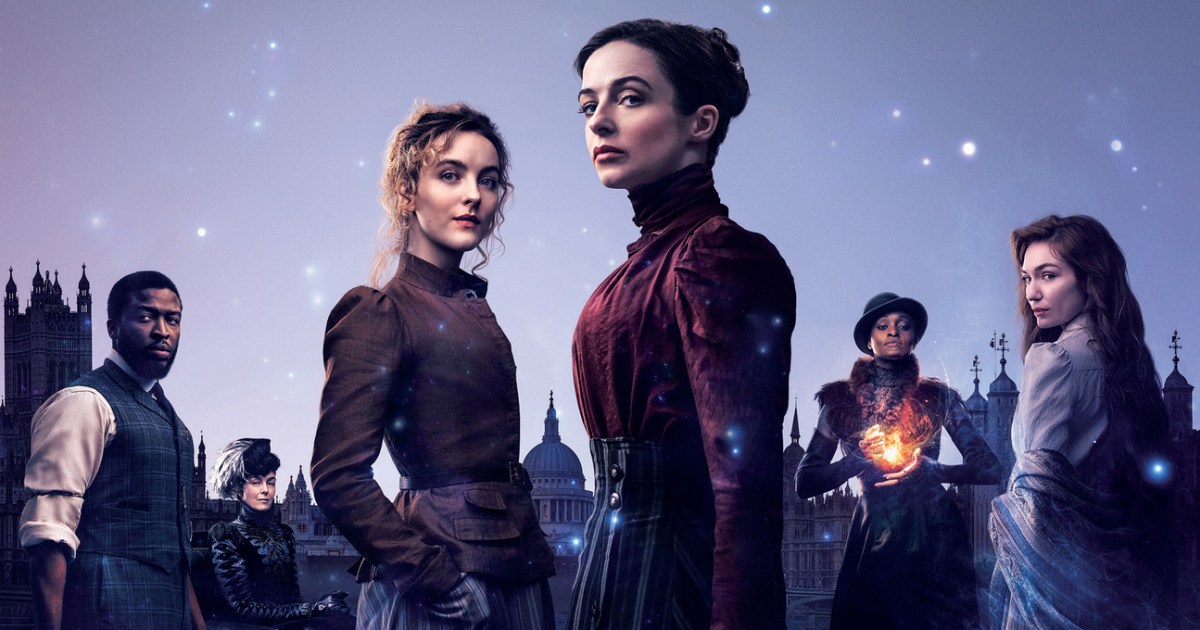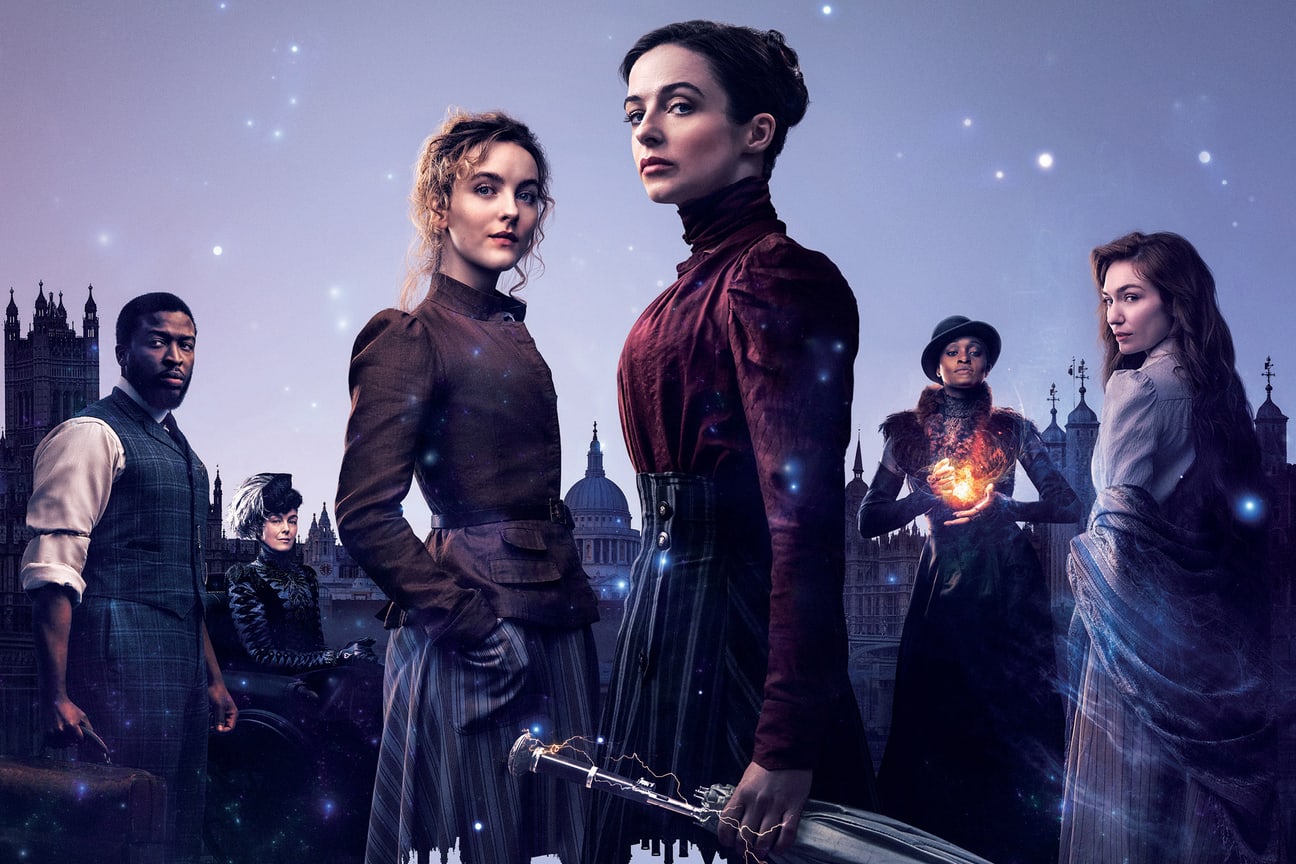
HBO’s new sweeping sort-of steampunk, sort-of superhero Victorian drama “The Nevers” is about power. That’s not unusual; much of the pop cultural zeitgeist these days can be summarized by the old Spider-Man slogan, “with great power comes great responsibility.” “The Nevers,” though pursues a more interesting idea. What happens when those who have been denied power are suddenly granted it in abundance? Will the rulers of society crush them? Or will there be revolution?
What happens when those who have been denied power are suddenly granted it in abundance? Will the rulers of society crush them? Or will there be revolution?
This is a great concept for a show. Unfortunately, “The Nevers” is so crowded with plot and character and intrigue that it has some trouble elbowing through all the clutter to get to the point. The series is set at the end of the 1800s in an alternate London in which many people, called “the touched,” have begun to display unusual, superheroic abilities. One is a polyglot and can speak every language on earth; another has grown to giant size; another can make inanimate objects float.
Most narratives about great superpowers center around the people who already have great power in society — affluent white guys. White billionaire superheroes like Iron-Man, Batman, Green Arrow and Charles Xavier just about outnumber Black heroes. Superteams like the Justice League have plenty of dudes but only one Wonder Woman. Representation has been getting somewhat better recently, but in general fantasy power dynamics mirror the power dynamics of the real world.
“The Nevers” is different. Some of the touched are men. But for unknown reasons, powers disproportionately fall to women.
Thus the “touched” become a metaphor for women, and for stigma against women and other marginalized groups. People who are touched are viewed with suspicion, like witches. In order to try to protect the touched, Lavinia Bidlow (Olivia Williams) sets up a home/orphanage for women who need refuge. Day to day operations are run by Amelia True (Laura Donnelly), who can see the future in snatches and also has a wicked right hook.
Discrimination against the touched, then, is a metaphor for discrimination against women. But the sudden power gained by women is also a metaphor for how society and patriarchy can change.
The sudden power gained by women is also a metaphor for how society and patriarchy can change.
Some of the touched have fairly innocuous abilities. For example, Harriet (Kiran Sonia Sawar), a South Asian would-be lawyer, can change small objects to crystal. That’s not a power that’s likely to overthrow the patriarchy. But “Bonfire” Annie (Rochelle Neil) can throw fire; Lucy Best (Elizabeth Berrington) can break anything she touches. Penance Adair (Ann Skelly) can see electricity and is a prolific inventor. Suddenly women have a technological advantage over men.
Villainous parliamentary leader Lord Massen (played by the brilliantly dry Pip Torrens), understands these implications and grasps the threat to the existing order. Anti-immigrant, anti-foreigner and anti-union, Massen notes with barely restrained indignation that there is “not one man of stature afflicted” with the new powers. “T]he heart of our empire [is] brought to a halt by the caprice and ambition of those for whom ambition was never meant,” he laments. “What women are appalled by today, they will accept tomorrow and demand the day after that. And the immigrant and the deviant. That is the power being wielded and not by us.” The low can suddenly challenge the high, and all hierarchy threatens to collapse as a result.
In theory, the show is about a team of powerful women radically altering society. In practice, though, “The Nevers” doesn’t quite follow through. One problem is that the show was created and initially helmed by Joss Whedon. Whedon has been accused of sexism and racism by a number of actors who worked with him on earlier projects like “Buffy the Vampire Slayer” and “Justice League.” He’s one of the last people you’d want telling a story about power inequities and sexism right now. It’s fortunate that he bowed out citing time constraints; screenwriter Philippa Goslett has replaced him as showrunner.
There are also issues with the plot itself. Even though the touched are supposedly fighting the established forces of law and order, one of the main characters is that wearisome television stereotype: the cop with a heart of gold. His name here is Frank Mundi (Ben Chaplin), who, in line with the usual copaganda, beats and threatens suspects — but for justice.
The series also doesn’t really grapple with the imperial implications of its concept. Racism is discussed in passing a couple of times by non-white supporting characters. But the implications of the touched for racial dynamics worldwide are never addressed in the four of twelve episodes available for review.
Supposedly only people in London are touched. If women with superpowers tip the hierarchy against men, what happens when so many white people suddenly have additional abilities not granted to those in India or other British colonies?
White women in England often played an important part in the British empire. They were missionaries and teachers, and sometimes enthusiastic cheerleaders. Pen could use her technological genius to force men to give women the vote. But her inventions could also use be used to put down rebellion in the colonies. Pen seems like a good-hearted person, but when power dynamics give one group — like say imperialists — a huge advantage, good-heartedness is often beside the point. Sudden shifts in power can destabilize the ruling class. But they can also cement its hold. Lord Massen should know that.
There are hints that the series will address some of these issues more directly as it goes on; later episodes suggest that some in London are already contemplating using the power of the touched for inimical ends. Hopefully, too, the story will make more room for the narratives of characters of color like Bonfire Annie and Harriet. Even if “The Nevers” struggles to live up to its radical ideas, though, it remains an engaging and thoughtful series. It’s rare to see a show about superpowers that asks us to imagine power differently.
Source: | This article originally belongs to Nbcnews.com







